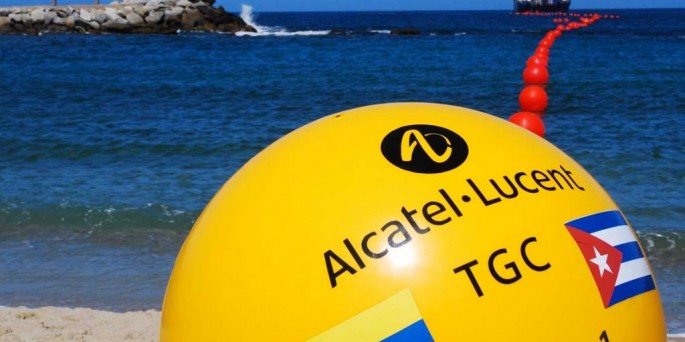
Internet in Cuba: Discourse and reality
CIENFUEGOS, Cuba – The willingness of the Cuban government to provide “social” access to the Internet returns to the public eye after the costs of navigating through cell phones are established.
The news that the mail accounts “@nauta.cu” can be accessed through mobile phones is the materialization of a Ministry of Communications regulation that established a price of up to 1 CUC per megabyte in the data transferred to cell phones.
Although the regulation permitted “up to 1 CUC,” the operators of the only Cuban telephone company, ETECSA, established that exact cost for checking one’s e-mailbox.
Some knowledgeable people consider that the fee is not so high if only the text-message feature is used. But if files are attached the outlook changes, because the photos “weigh” a lot more than words.
“It is extremely expensive,” says Ixser, a computer engineer who agreed to carry out an experiment to show the amounts this facility would cost once the authorities allow us to navigate on the Internet with our cell phones.
“One megabyte (Mb) represents 1,024 kilobytes (kb), so when you open the home page of the news site Cubadebate you’re already consuming 684 kb, in other words, more than half a CUC — and you haven’t even taken any other action,” he says.
Another way to imagine the impact of the measure is to find out the Internet consumption of university students, who receive different navigation “quotas” according to the school where they study and the class they’re in.
“I’m allowed 80Mb per month as a quota. Is that enough, I mean really enough? That’s not enough,” comments Abel LaO, a student at Cienfuegos University, who limits his usage to reading the sports page every morning, download articles from academic websites and surf Facebook “just a little.”
“It is seldom that [the quota] lasts until the end of the month,” he laments.
When you multiply Abel’s 80 Mb by the CUC price, the cost of a monthly consumption rises to 80 CUC — almost 100 dollars — an amount that most Cubans cannot afford.
A leaked report says that Internet connection to Cubans’ homes will begin next September.
According to the report, a package of 20 hours of Internet will cost 10 CUC; 50 hours will cost 15 CUC; 100 hours, 30 CUC; 180 hours, 50 CUC and 220 hours, 60 CUC. There will be a 90-hour package (from 8 p.m. to 7 a.m.) that will cost 20 CUC. Each additional hour will be sold at 30 convertible cents.
If we consider that the average monthly wage in Cuba in 2012 (no figures yet for 2013) was 466 national pesos (almost 20 CUC), we can see the total mismatch between the cost of the service and the wages of most Cubans.
‘Social’ access?
Increasingly more voices are warning about the financial nature assumed in Cuba by the access to a resource that’s essential for development.
“The Cuban state argues that, in the face of material shortages, it has had to resort to a policy of ‘social’ use for the Internet, in order to place its resources in the sectors that are essential to the nation’s development. That theory is more or less logical, but only to the point that in recent times we’ve witnessed a mercantilization of the access,” said Cuban researcher and journalist, Milena Recio, professor of journalism in Havana, in an interview with the website eltoque.com.
“I would like to think that these prices are circumstantial and that they go against with what (I imagine) is Cuba’s official policy on the Internet. And I say ‘I imagine’ because that policy has not been discussed publicly or established in documents that are sufficiently known by the population,” Recio says.
Those who express doubts about the official willingness to lower prices to raise access will find support in their experience with the Nauta service, which was introduced in May 2013 with a promise that fees would be lowered as the service improved performance. After almost one year of Nauta’s introduction, nothing has changed.
The assertion by the Vice Minister of Communications at the time Nauta was introduced that “it won’t be the market that regulates access to knowledge” has become “old” and is challenged by reality, because each new opening in the Internet faucet brings its own filter. Economic ability as a condition to “drink” has become the real key to the access.
As deception mounts and the hopes to have Internet decline, we hear opinions like those of researcher Juan Triana Cordovi, of the Center for Studies of the Cuban Economy, who seldom misses a chance to insist on the need to provide cheap access to the WorldWideWeb.
“The Internet today is what the train was to development in the 19th Century. Through it travels 95 percent of world information, saving us brutal costs. If a Cuban scientist takes six hours to download a book while a scientist elsewhere takes 10 minutes to do it, what happens is that our country loses competitiveness,” he explains.
“If someone doesn’t understand this, he needs to have his mind improved or his head cut off,” he adds, half in jest.

